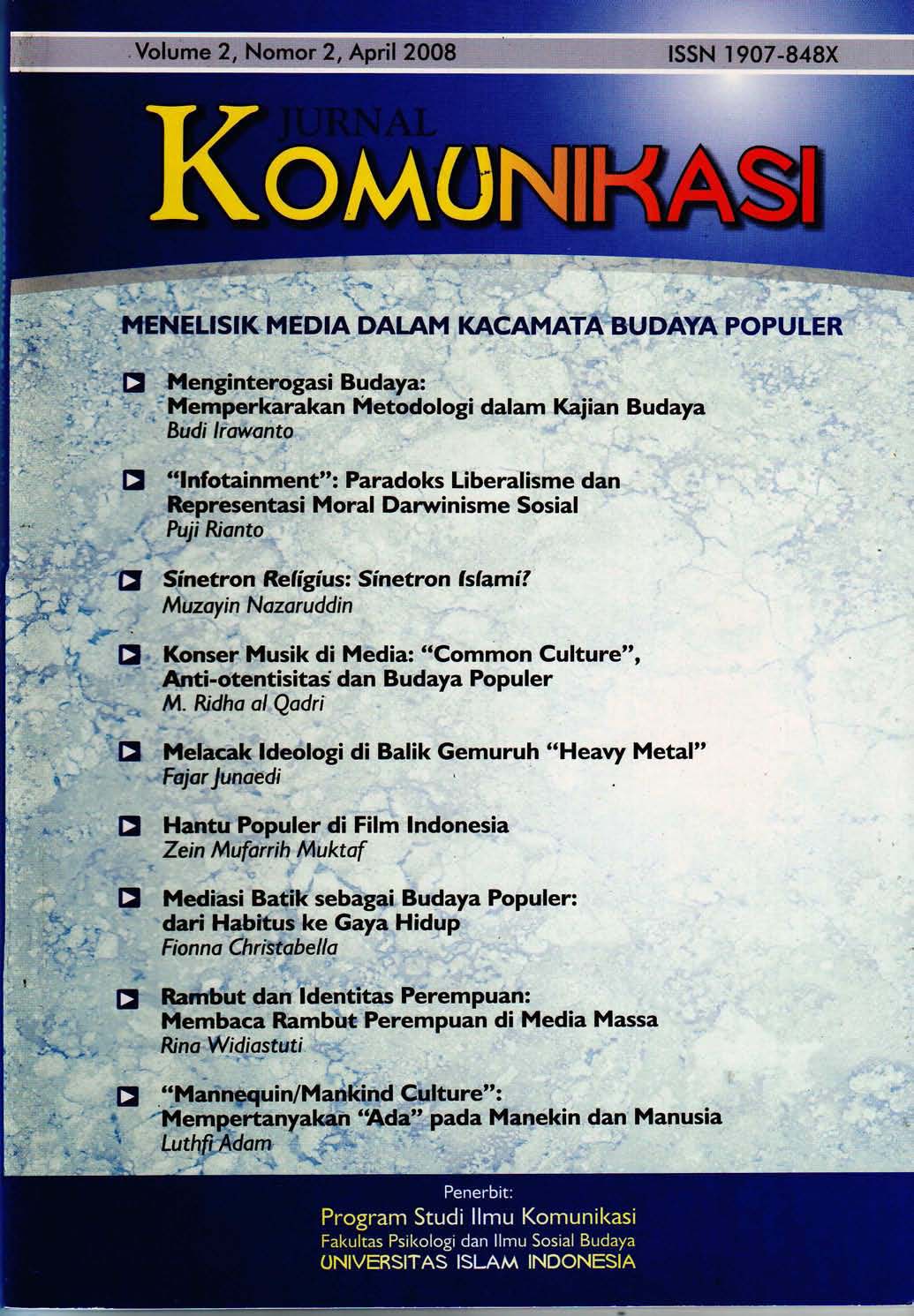Main Article Content
Abstract
Methodology in cultural studies has triggered some conflicting discourses hence it has become harder, not easier, to be pined down and defined neatly. Since its inception cultural studies was dubbed as “an intellectual guerrilla” against the rigidity of disciplines in the academia. Further, in cultural studies knowledge is perceived as a practice rather than a sum of abstract propositions or general objective laws. This article argues that methodology in cultural studies is far to be “objective” (as defined by the positivist approach) since it context-bonded influenced by social position, historical moment and particular political agendas.
Article Details
License
Authors who publish with this journal agree to the following terms:
- Authors retain copyright and grant the journal right of first publication with the work simultaneously licensed under a Creative Commons Attribution License that allows others to share the work with an acknowledgement of the work's authorship and initial publication in this journal.
- Authors are able to enter into separate, additional contractual arrangements for the non-exclusive distribution of the journal's published version of the work (e.g., post it to an institutional repository or publish it in a book), with an acknowledgement of its initial publication in this journal.
- Authors are permitted and encouraged to post their work online (e.g., in institutional repositories or on their website) prior to and during the submission process, as it can lead to productive exchanges, as well as earlier and greater citation of published work (See The Effect of Open Access).
How to Cite
Irawanto, B. (2016). Menginterogasi Budaya: Memperkarakan Metodologi dalam Kajian Budaya. Jurnal Komunikasi, 2(2), 297–304. Retrieved from https://journal.uii.ac.id/jurnal-komunikasi/article/view/5135
